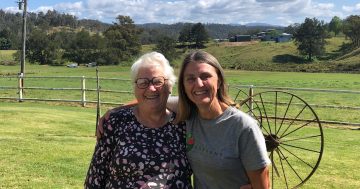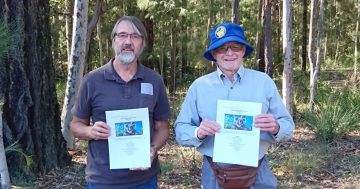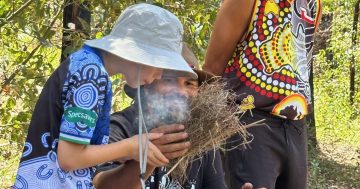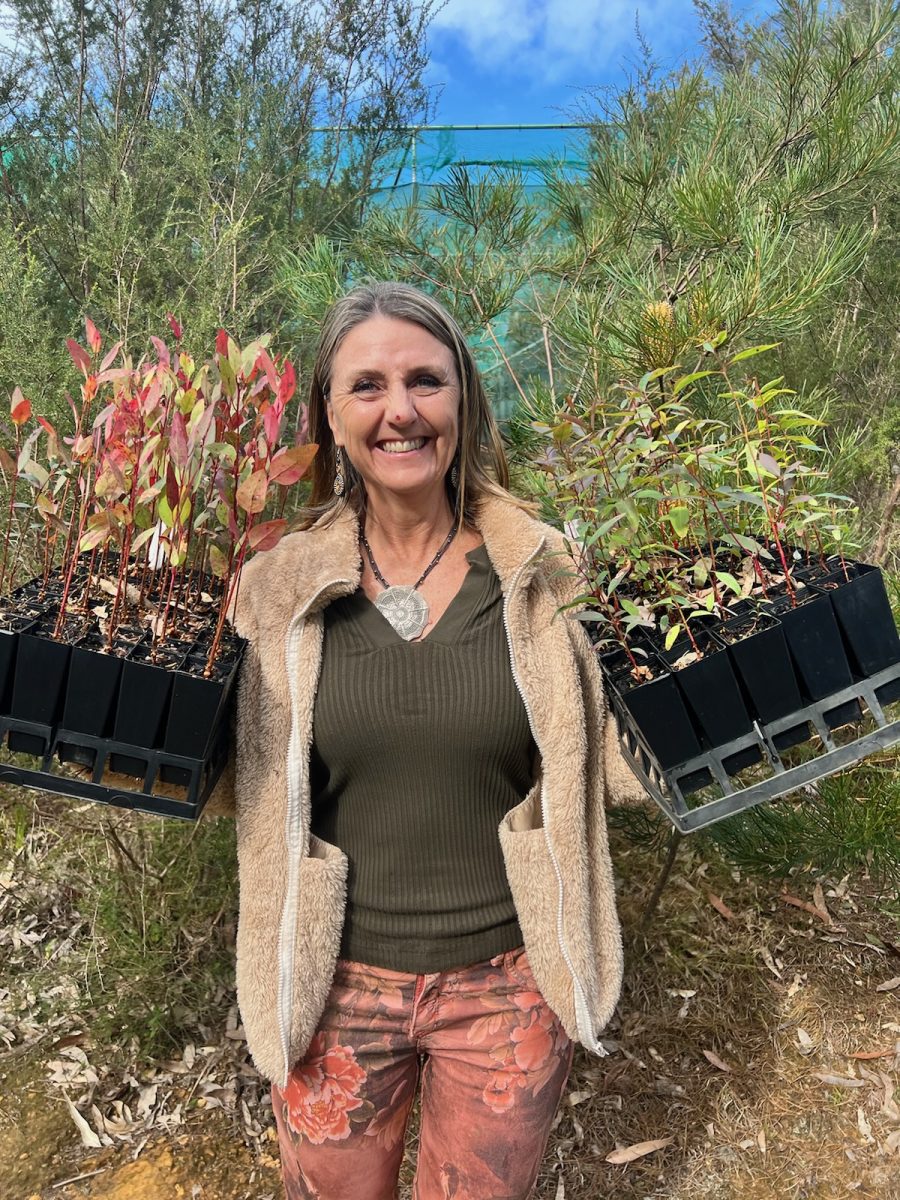
Sharlene Cohen with some of the thousands of eucalyptus tube stock now being grown in the Eurobodalla Regional Botanical Gardens destined for the koala corridor. Photo: Supplied.
A small group of volunteers in the Eurobodalla is working with farmers to restore the habitat of the endangered koala – before it is too late.
In a project which was the brainchild of Keith Joliffe, environmentalist Sharlene Cohen, from Malua Bay, and a group of dedicated volunteers are working on a plan that would have been unheard of years ago – asking farmers to give up a section of their land so native eucalypts can be planted along a corridor to provide safe passage for koalas.
Through the Eurobodalla Koala Project (EKP), progress has already been made with environmentalists starting to work together with private landholders for the sake of the iconic marsupial.
“It was Keith who first found scats [koala poo] in the area where we’re looking at,” Sharlene, the project administrator, said, “so that told us they were here. His priority was to work with the private landholders there to see if we could support a habitat.
“As volunteers, we go out to see who and what is there and whether the property might support connectivity to the national parks for the koalas with the correct feed trees.”
She said government funding to find likely koala populations around Cooma, the Illawarra and Bermagui had been successful which indicated proof of the koala’s existence there, but there was a “bit of a knowledge gap” when it came to the Eurobodalla region.
Described as a “citizen scientist” project, the Eurobodalla volunteers are working to connect with landholders in the Waterhole Flat area so they can join the path on either side of the river.
“We want to make the Eurobodalla known as the the home of Eurobodolla koalas,” Sharlene said.
She said with the success of recent drone surveys, identifying koalas and other wildlife, hopes were high that a koala corridor could be developed.
“The community reaction to the work Keith and the volunteers have done is amazing,” she said, adding that three koalas had been found.
“We’ve found that farmers are open to talking about this project, but we understand they are in the business of making money from cattle so there was always going to be the challenge for them to grasp of planting trees on their land.
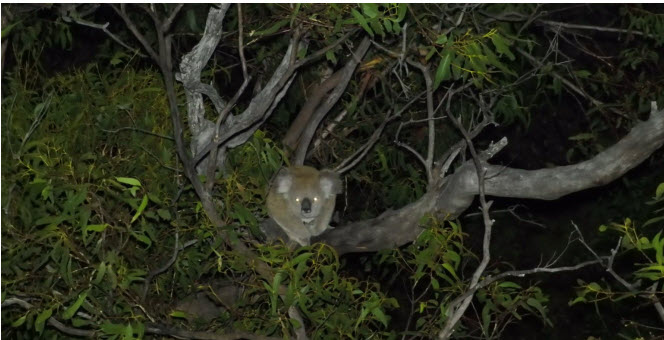
This rare vision of a koala in the Eurobodalla was shot earlier this year. Photo: Eurobodalla Koala Project.
“But we are working closely with them and have chosen the area because of recent and historical sightings.
“It’s in an area along the Eurobodalla Road, near where the new dam is. The bush is on the western side of the Tuross River, and then on the west and the east, there’s grazing land which goes into the Eurobodalla Forest.
“There’s a clear gap there and koalas don’t like travelling along the ground, they prefer to be in trees where they’re less vulnerable.”
She said so far, some property owners had embraced the idea as had some hobby farmers. A 20-metre corridor is needed with the volunteers keen, “in a perfect world”, Sharlene said, “to plant 1000 trees on six sites”.
The volunteers have done letter drops, door knocks and spoken to as many locals as possible.
“This is all about having a conversation,” she said. “It’s all about building the momentum when there’s evidence of koalas on a property.
“Koala home on the Eurobodalla has a nice ring to it.”
People interested in helping with the Eurobodalla Koala Project are invited to attend a seminar on Threatened Species Day, Saturday 7 September, followed by a guided walk through the Eurobodalla Regional Botanical Gardens. The event is free. More information available on the website.







